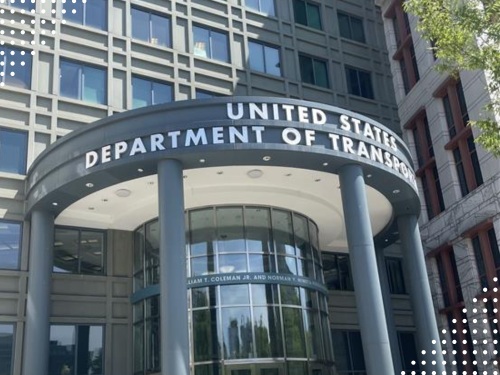The American Association of State Highway and Transportation Officials recently voiced its support for the six goals at the heart of the new “strategic framework” being developed by the U.S. Department of Transportation.
[Above photo by the USDOT]
The USDOT issued a Request for Comment on December 3 seeking feedback on its strategic framework from transportation industry stakeholders. AASHTO submitted its comments on USDOT’s plan in a December 16 letter.
As part of its feedback, AASHTO requested the USDOT include several additional strategies to help achieve the goals set out in its framework:
- Adopt policy priorities that create a safe and sustainable multimodal transportation system.
- Include strategies that address the transportation safety needs of those living in historically underserved/disadvantaged communities.
- Recognize the need for flexibility in the implementation of transportation programs.
- Develop policies and provide resources that support ensuring access to transportation systems for everyone.
- Seek transportation funding innovations.
- Work together with partners to share information and efforts.
- Pursue funding for workforce development efforts.
- Create methods to better connect transportation research to policies and implementation.
AASHTO also “strongly supports” the establishment of a data-driven framework to measure the progress towards USDOT’s own strategic goals.
As an example, AASHTO suggests the USDOT use internal performance measures that focus on achieving various aspects of the strategic goal areas, identify the data that would support calculation of the measures, and then determine what success looks like and set specific targets for implementation, tracking, and reporting.

AASHTO also stressed that when it comes to implementation of the Infrastructure Investment and Jobs Act or IIJA, where a range of possible legislative interpretations exist, USDOT and other federal partners should provide maximum flexibility to state departments of transportation so they can best meet the unique needs of their respective states.
“AASHTO membership input is critical not just for this implementation plan, but for the full duration of IIJA, including in development of regulations, guidance, and policies,” the organization said.
AASHTO also emphasized the importance of developing better “supporting partnerships” with other organizations – including federal, state, and local agencies, tribal governments, labor groups, private sector firms, academics, non-profits, and others in its letter.
Those organizations offer “broader perspectives” within the transportation community and collaboration with them would strengthen the understanding many issues and improve the stewardship of the nation’s transportation system so that it serves every community safely, equitably, and efficiently, AASHTO said.
 Top Stories
Top Stories


